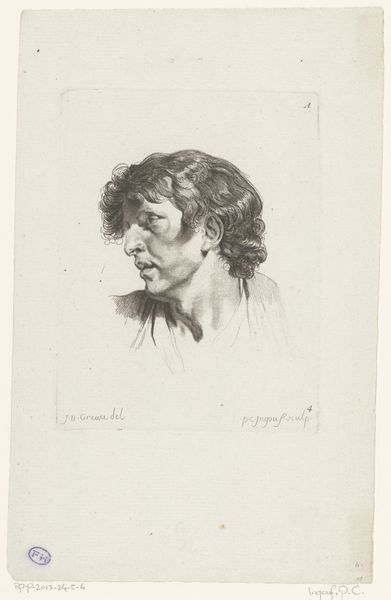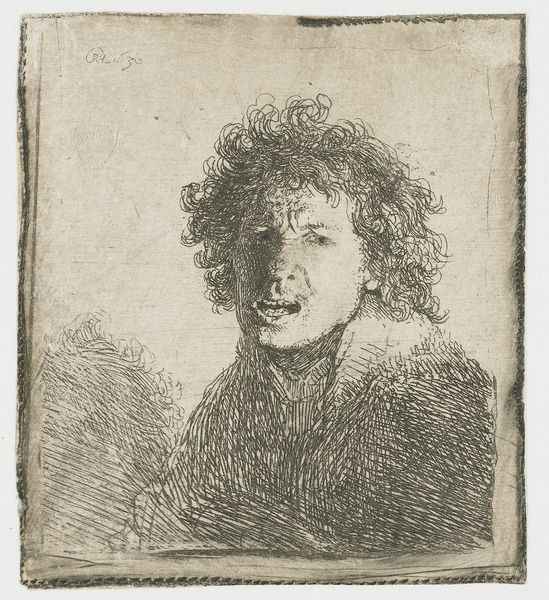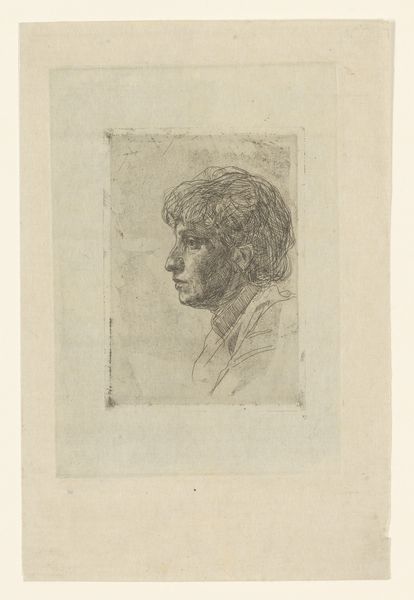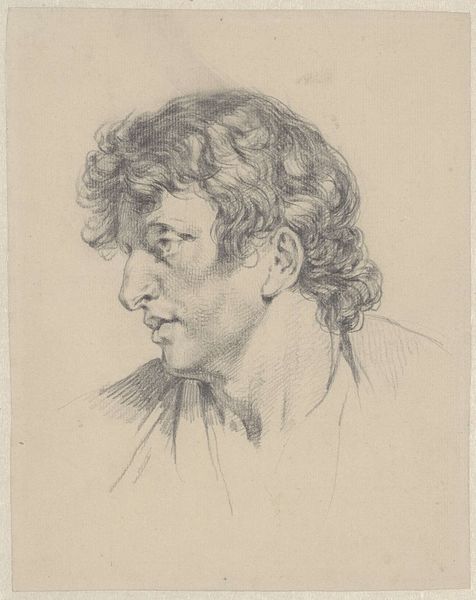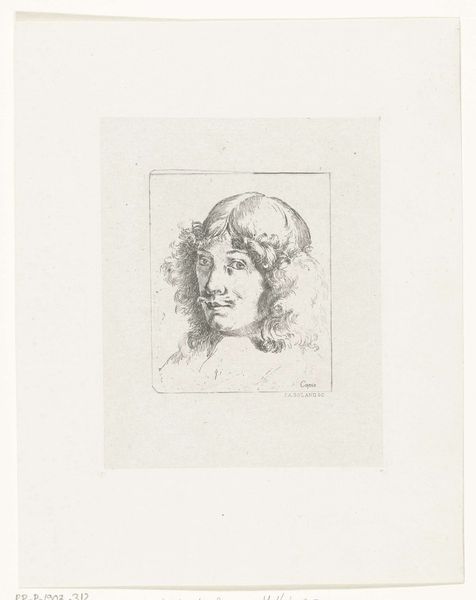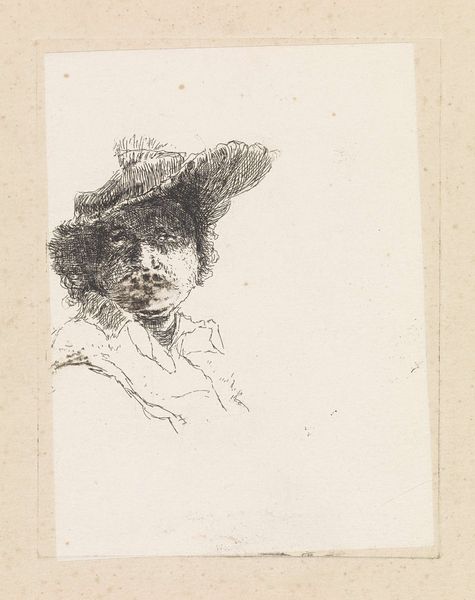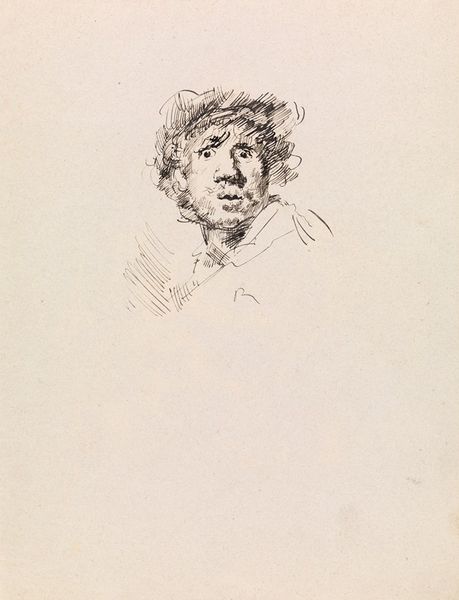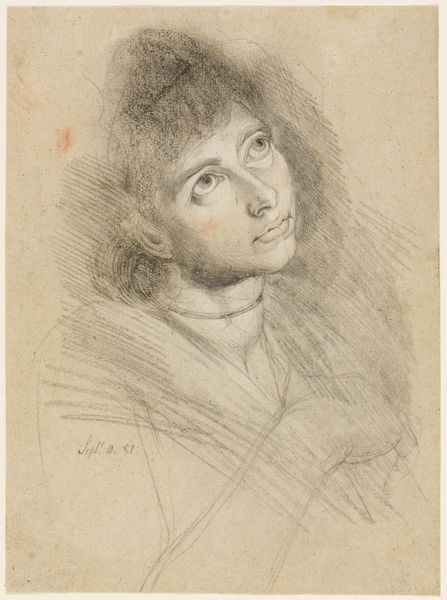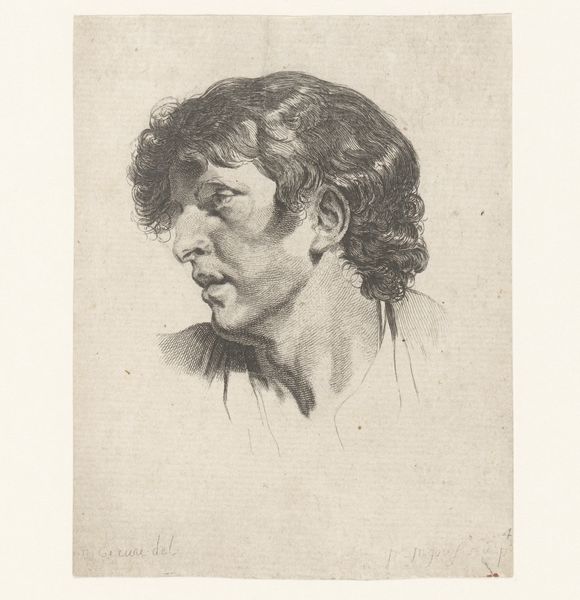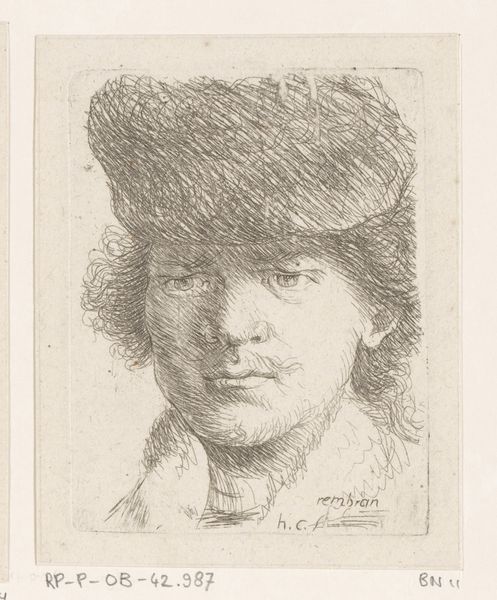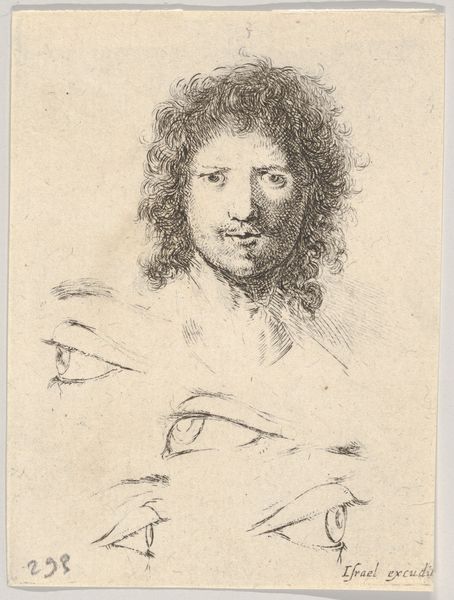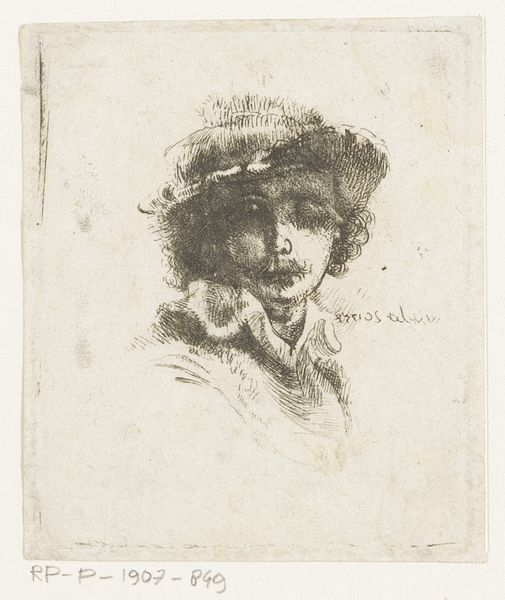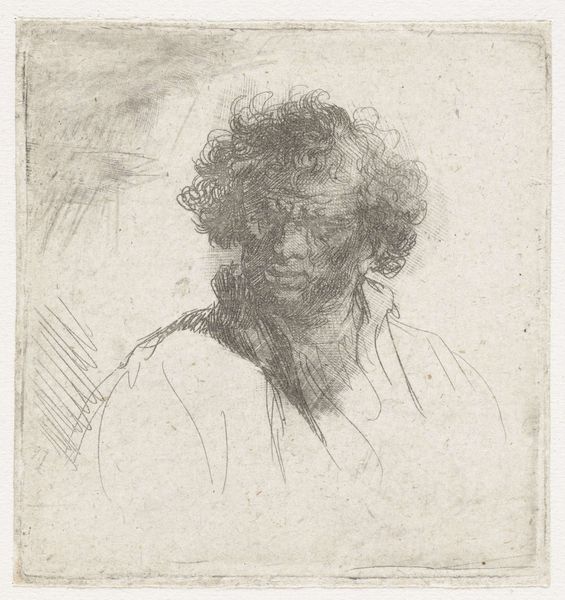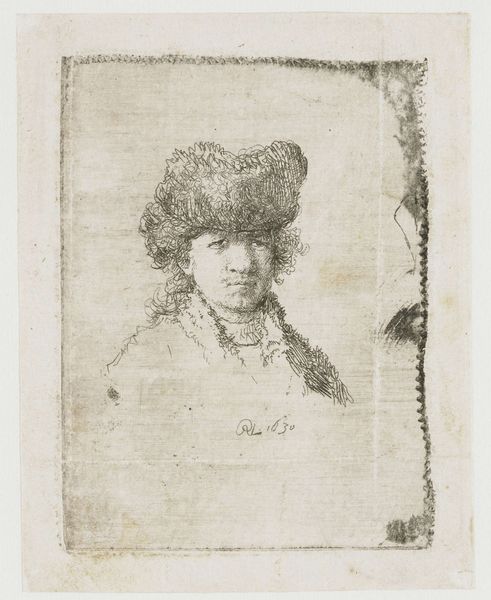
Dimensions: height 56 mm, width 51 mm
Copyright: Rijks Museum: Open Domain
This self-portrait was etched by Johann Jürgen Busch sometime in the late 18th or early 19th century. Etching is an indirect intaglio process, meaning that the artist protects areas of a metal plate with a resist, then immerses the plate in acid, which bites away the exposed areas. This creates recessed lines that hold ink. Consider how the etching technique itself informs the image. Look closely at the density of lines, which build up the areas of shadow in the face and cap. Notice the controlled, almost frantic quality to the marks. This wasn’t a quick sketch, but a careful study made with considerable labor and skill. Busch would have needed expertise not only in drawing, but also in the chemistry and mechanics of etching – skills often associated with craft traditions rather than high art. By mastering this process, Busch not only created an intriguing self-portrait, but also blurred the lines between artistry and craft. The print is a reminder that all art is made, and that the means of its making always matter.
Comments
No comments
Be the first to comment and join the conversation on the ultimate creative platform.
